The characters, flora and fauna of Joshua Tree National Park
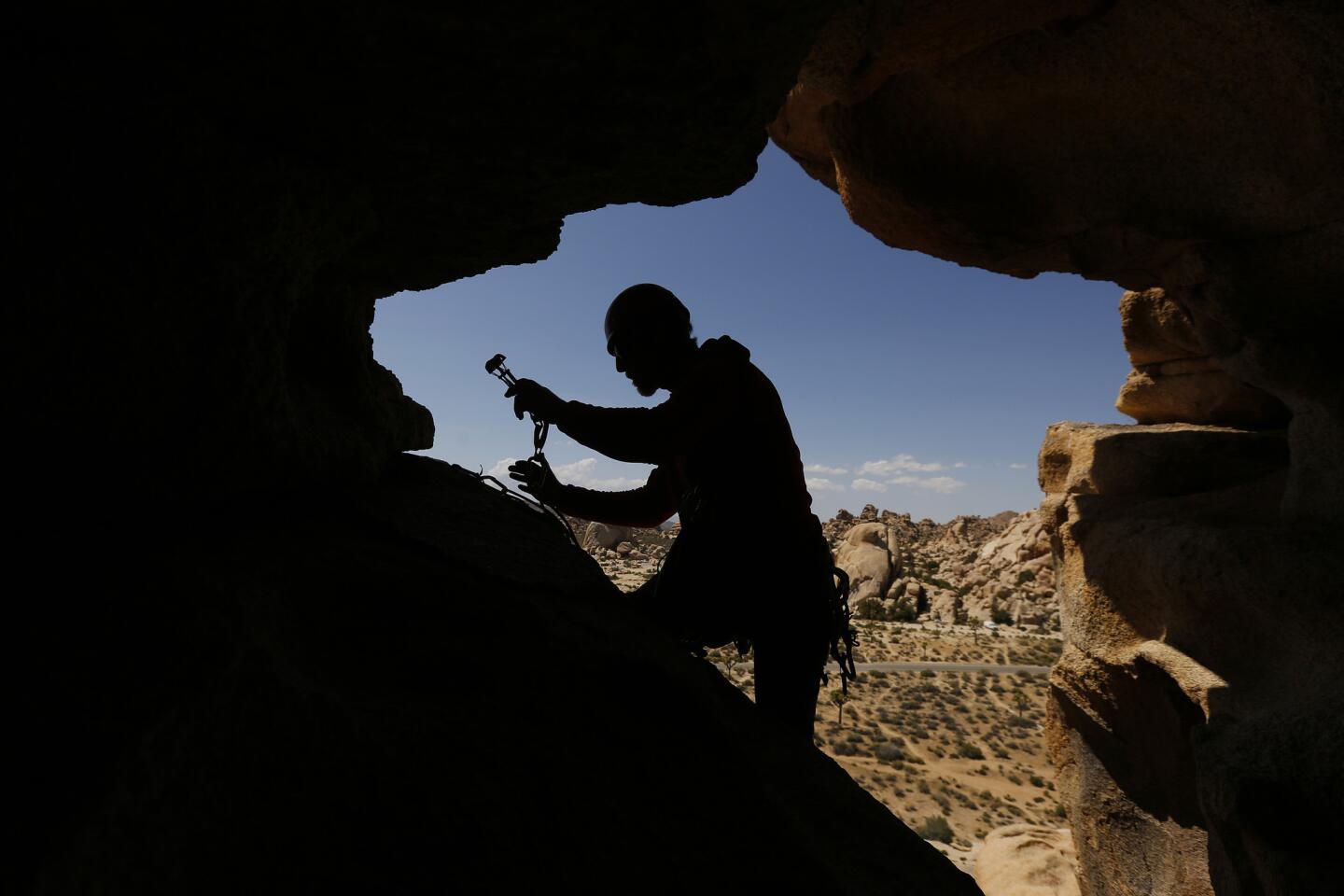
Seth Zaharias, who runs Cliffhanger Guides with his wife, Sabra Purdy, has mixed feelings about the park’s increase in visitors. He worries about damage to the park with so many people, but as a guide he’s making more money. “There is more money in my bank account than there ever has been, but my quality of life has gone down significantly,” he says.
(Rick Loomis / Los Angeles Times)More and more people are craving that Joshua Tree state of mind. Hikers, climbers and seekers of all sorts are converging on this park like never before.

Karine Swenson works off of photographs she takes out in Joshua Tree National Park to inspire her art. “The desert has been an unexpected gift,” she said.
(Rick Loomis / Los Angeles Times)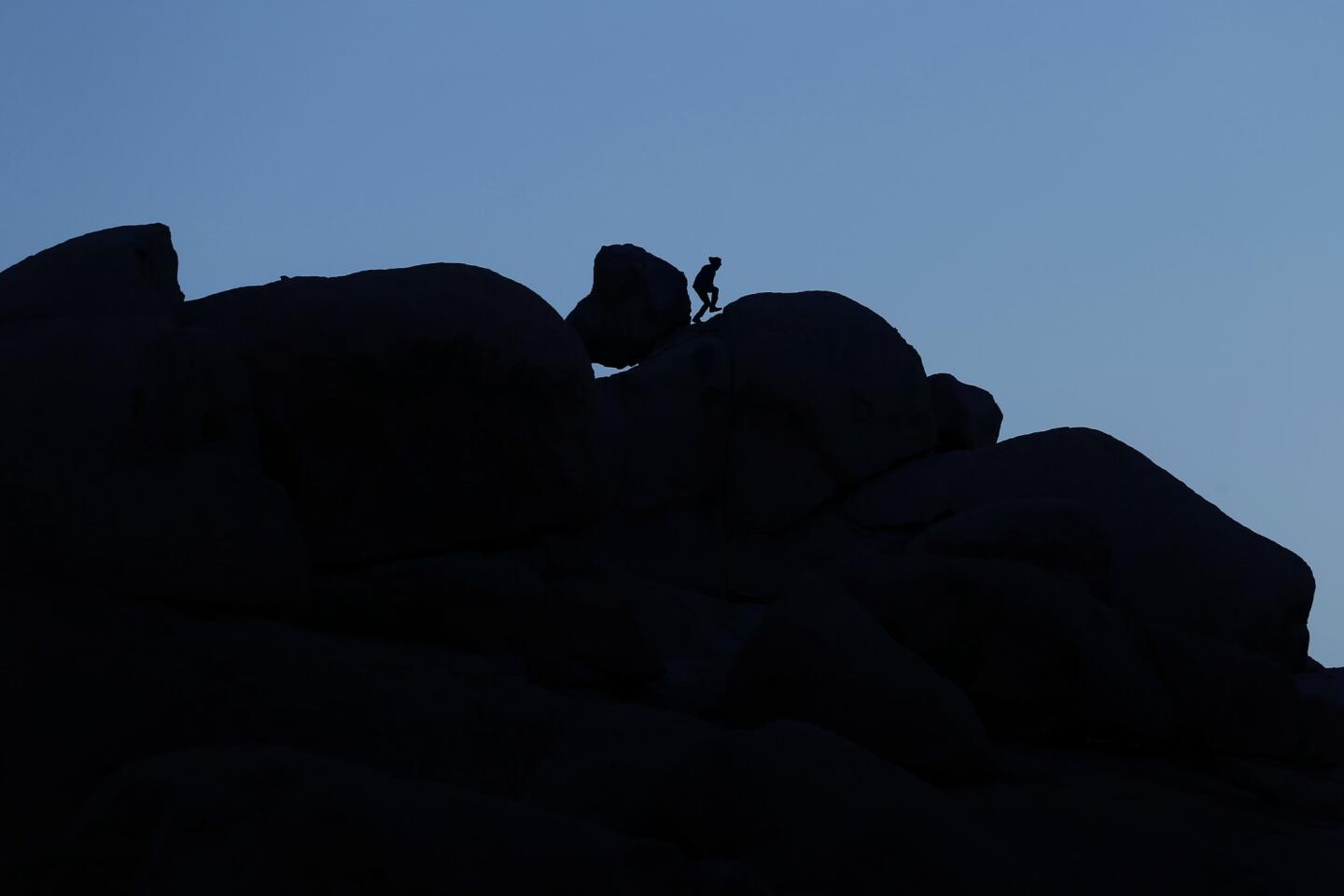
Desert destinations such as Joshua Tree National Park are among the few places where we can sit, listen and hear something we didn’t expect: nothing.
(Rick Loomis / Los Angeles Times)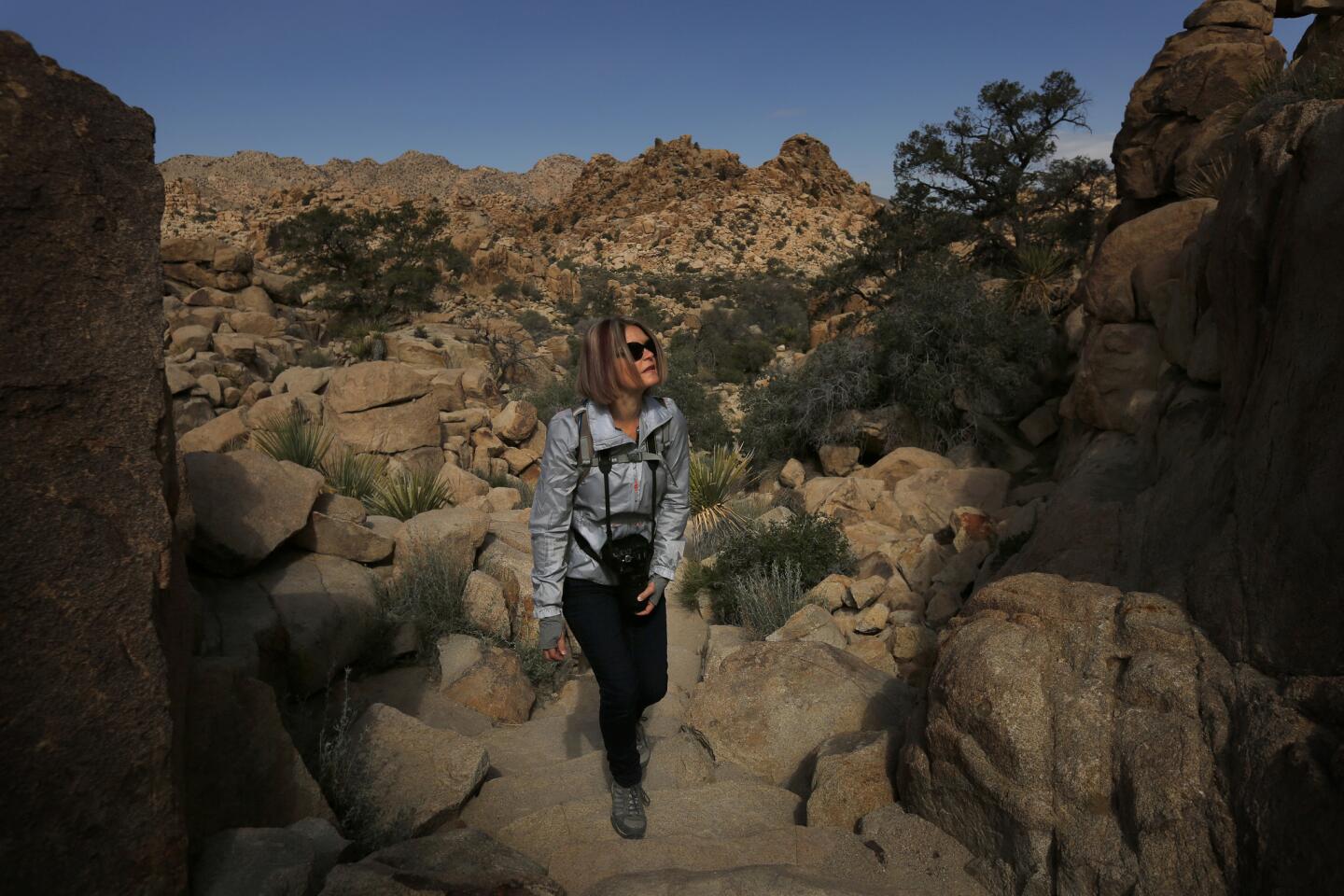
Artist Karine Swenson hikes the Hidden Valley Nature Trail where she often comes to shoot pictures and get inspiration for the art she creates.
(Rick Loomis / Los Angeles Times)Advertisement
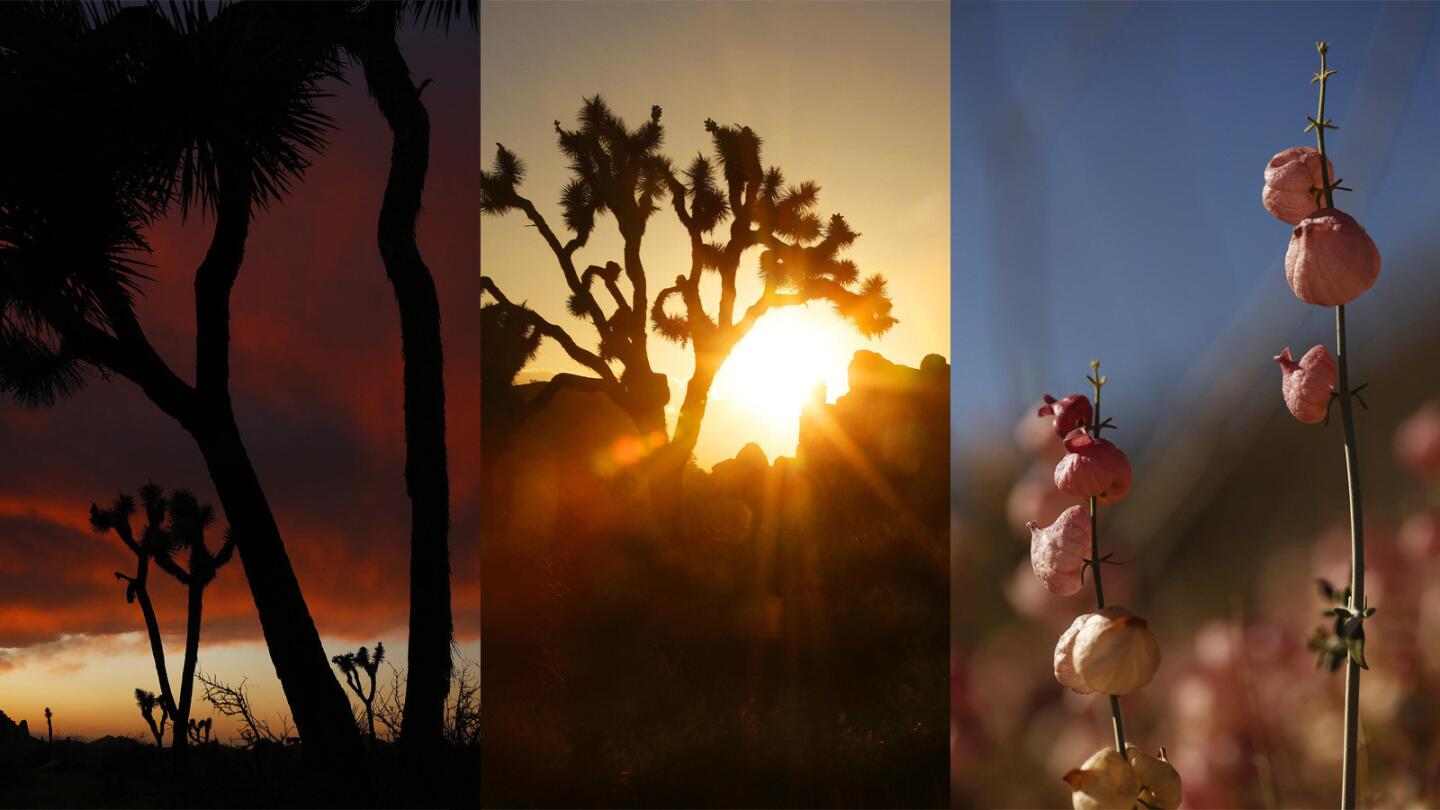
Joshua trees, from which the park takes its name. A paperbag bush in bloom, right, which typically happens between April and June, in Joshua Tree National Park.
(Rick Loomis / Los Angeles Times)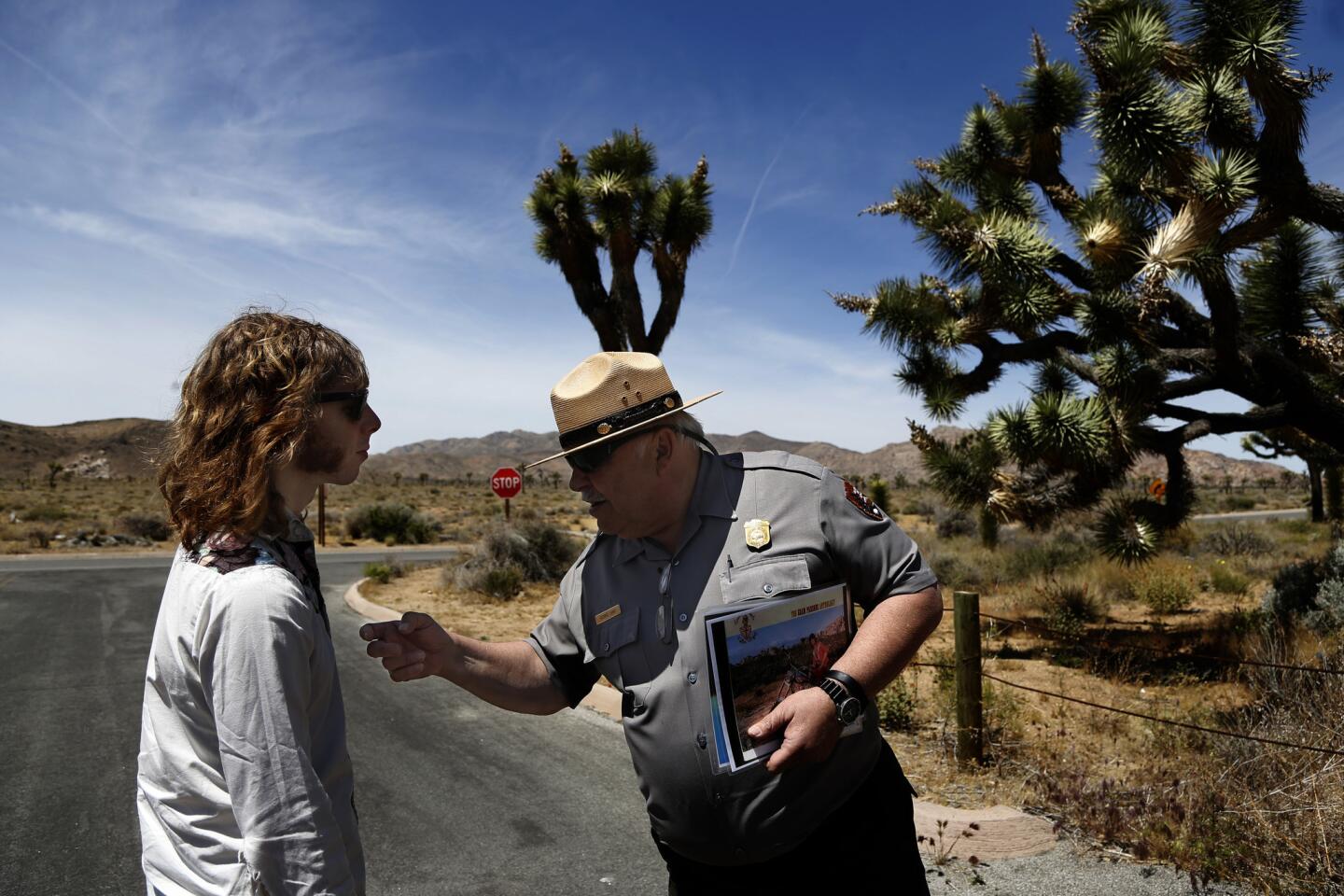
Charlie Salvidge, 29, of London, listens to George Land, the community outreach ranger for Joshua Tree National Park, tell the story of where musician Gram Parsons’ body was burned back in 1973.
(Rick Loomis / Los Angeles Times)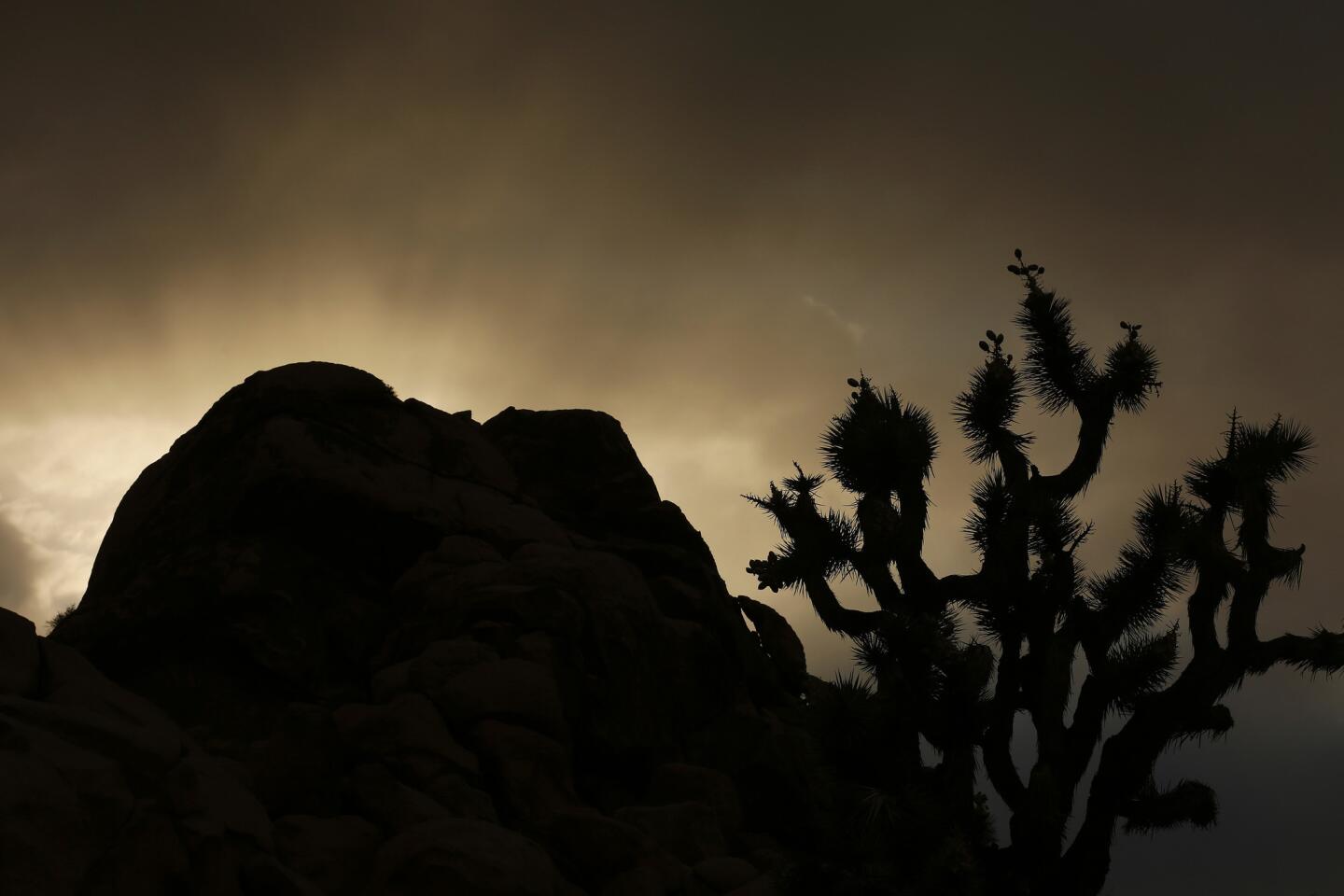
Joshua Tree National Park covers 790,636 acres and is a popular area for rock climbers, campers and nature lovers.
(Rick Loomis / Los Angeles Times)
David Griffith, or D.Griff as he is known in the rock climbing world, surveys the stark landscape in Joshua Tree after making a free climb to the top of Cyclops Rock. “You come here and it’s all about feeling the wind, the sun, and it’s gratifying, man,” he said “It’s magical.”
(Rick Loomis / Los Angeles Times)Advertisement
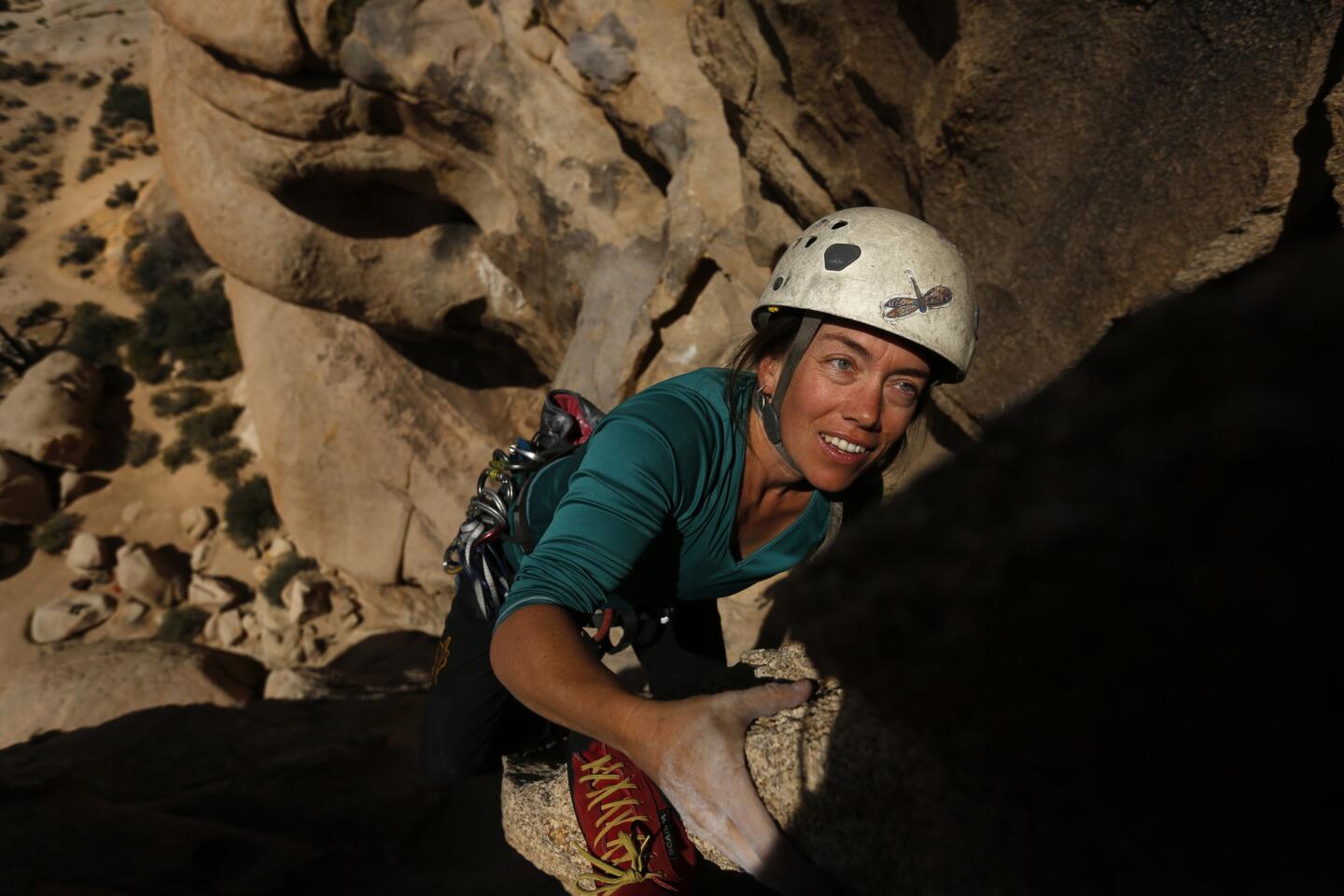
Sabra Purdy, 37, makes her way up The Eye climbing route on Cyclops Rock in Joshua Tree National Park.
(Rick Loomis / Los Angeles Times)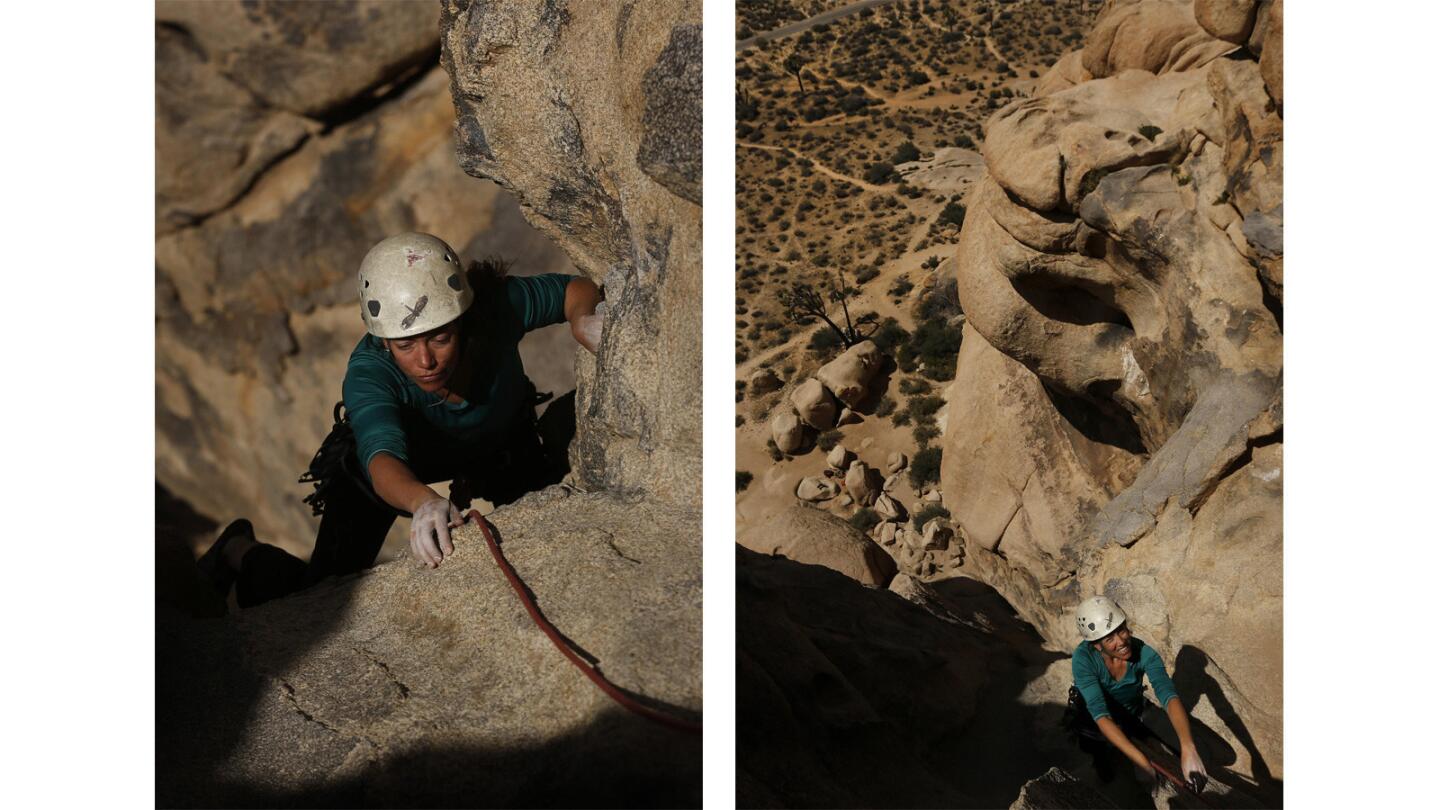
Sabra Purdy and her husband, Seth Zaharias, 39, run Cliffhanger Guides. They lead rock climbing tours in the park.
(Rick Loomis / Los Angeles Times)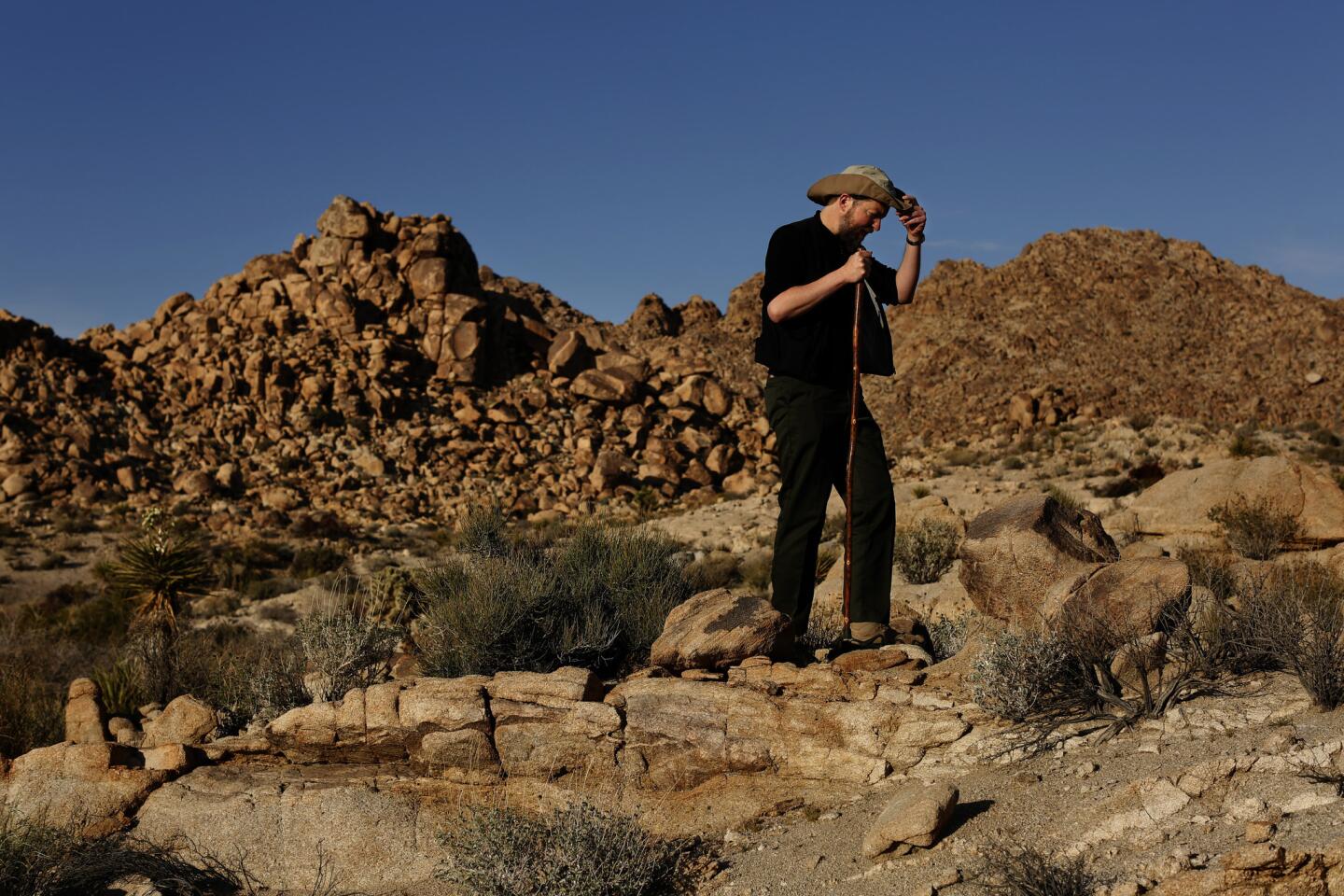
Ken Layne goes on one of his near daily walks with his dog just outside the entrance to Joshua Tree National Park. Layne is the publisher of the Desert Oracle, a quarterly magazine with writings about the American desert and the culture around it.
(Rick Loomis / Los Angeles Times)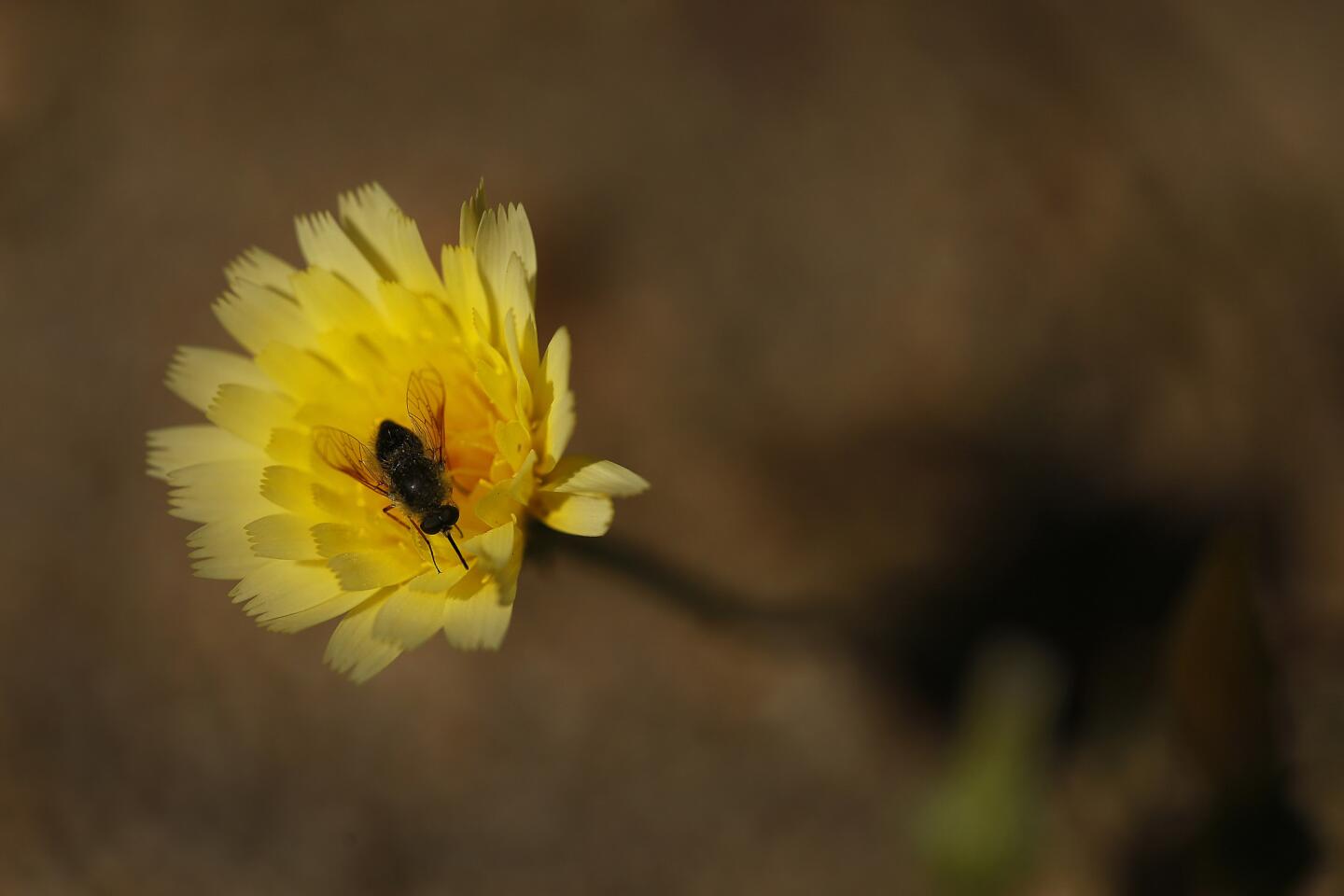
The desert dandelion can be found in Joshua Tree National Park.
(Rick Loomis / Los Angeles Times)Advertisement
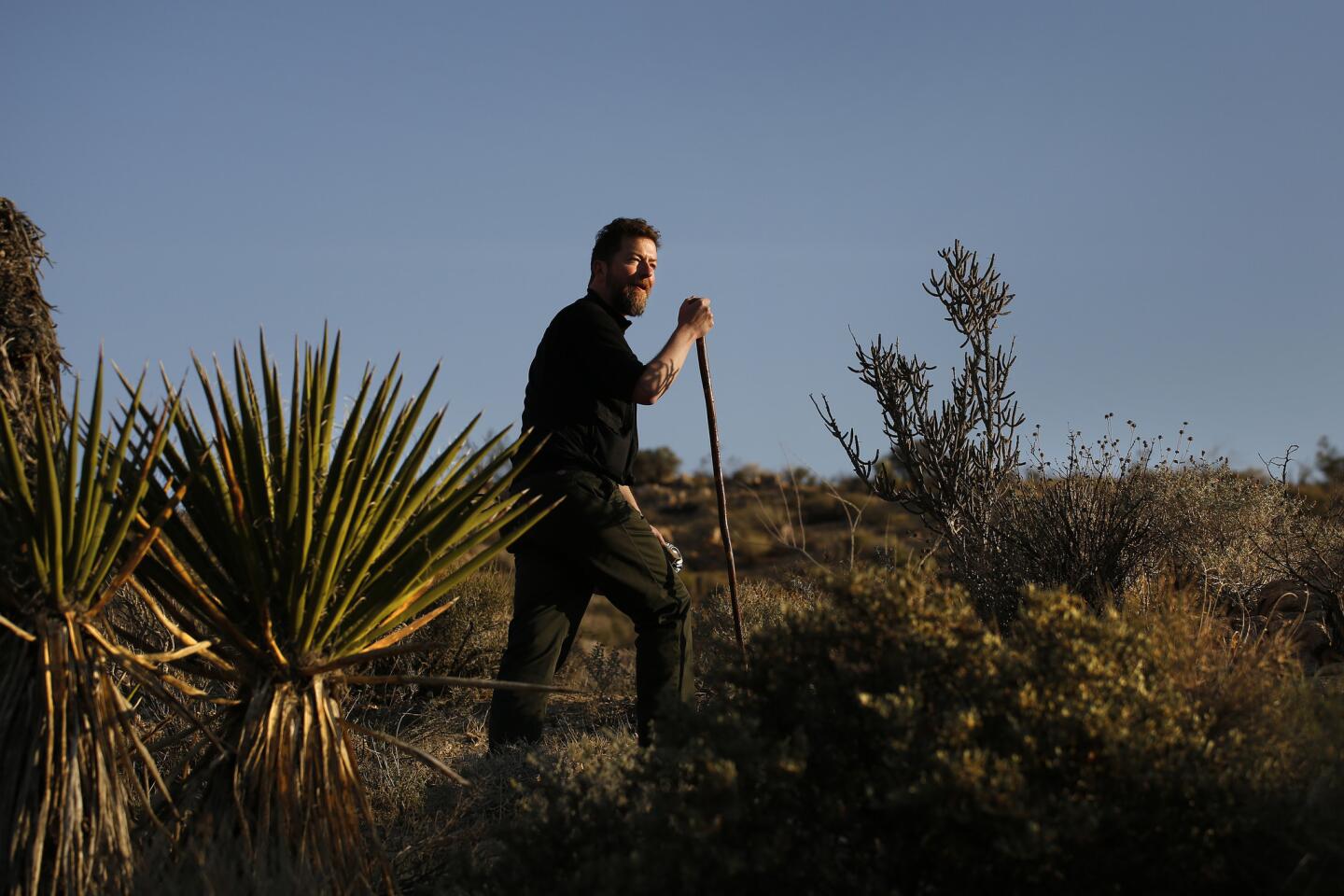
“The desert has suddenly become cool,” Ken Layne said. “The millennials think it’s authentic. They come on their way to and from Coachella, it’s become something you have to do.”
(Rick Loomis / Los Angeles Times)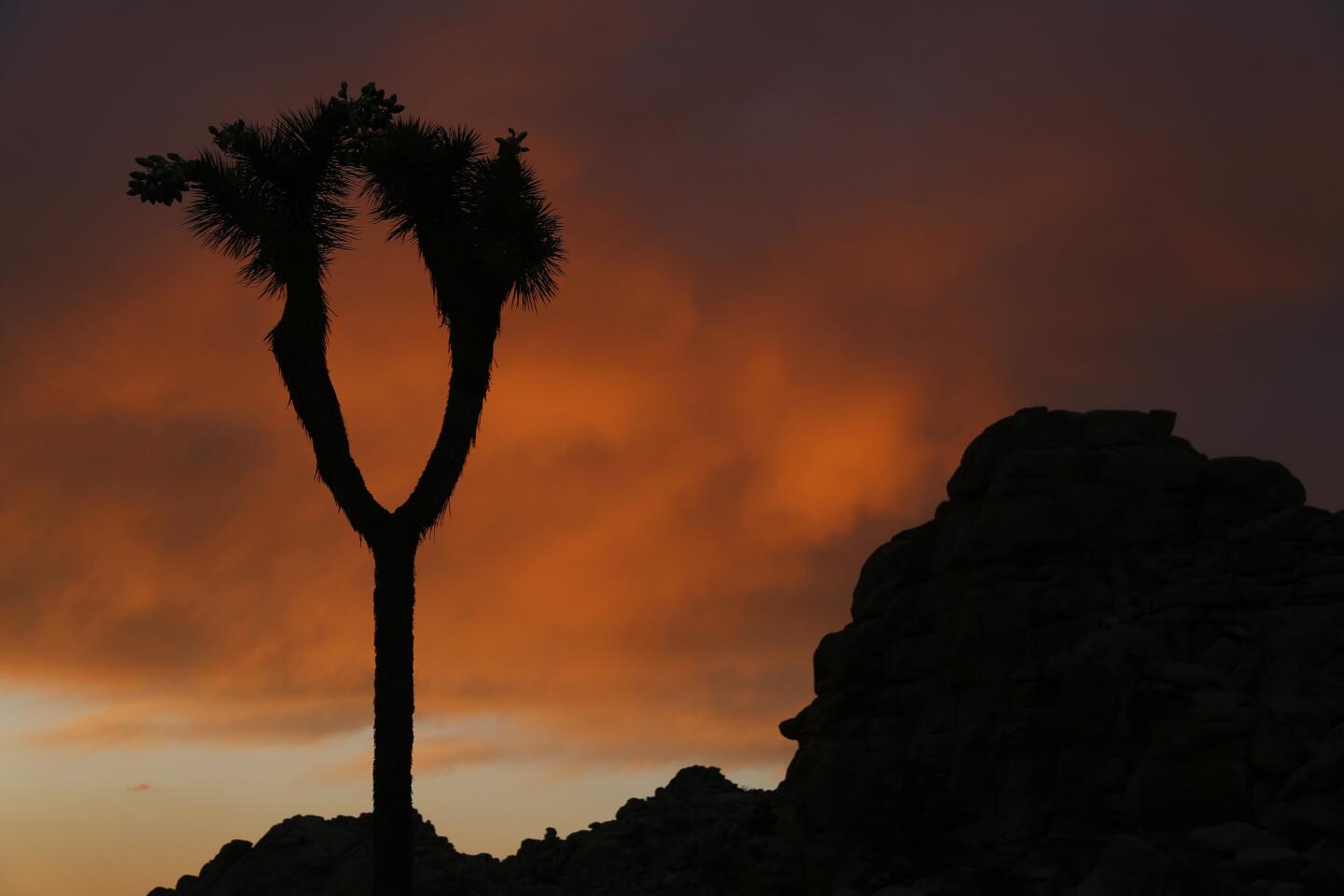
Joshua Tree National Park. (Rick Loomis / Los Angeles Times )
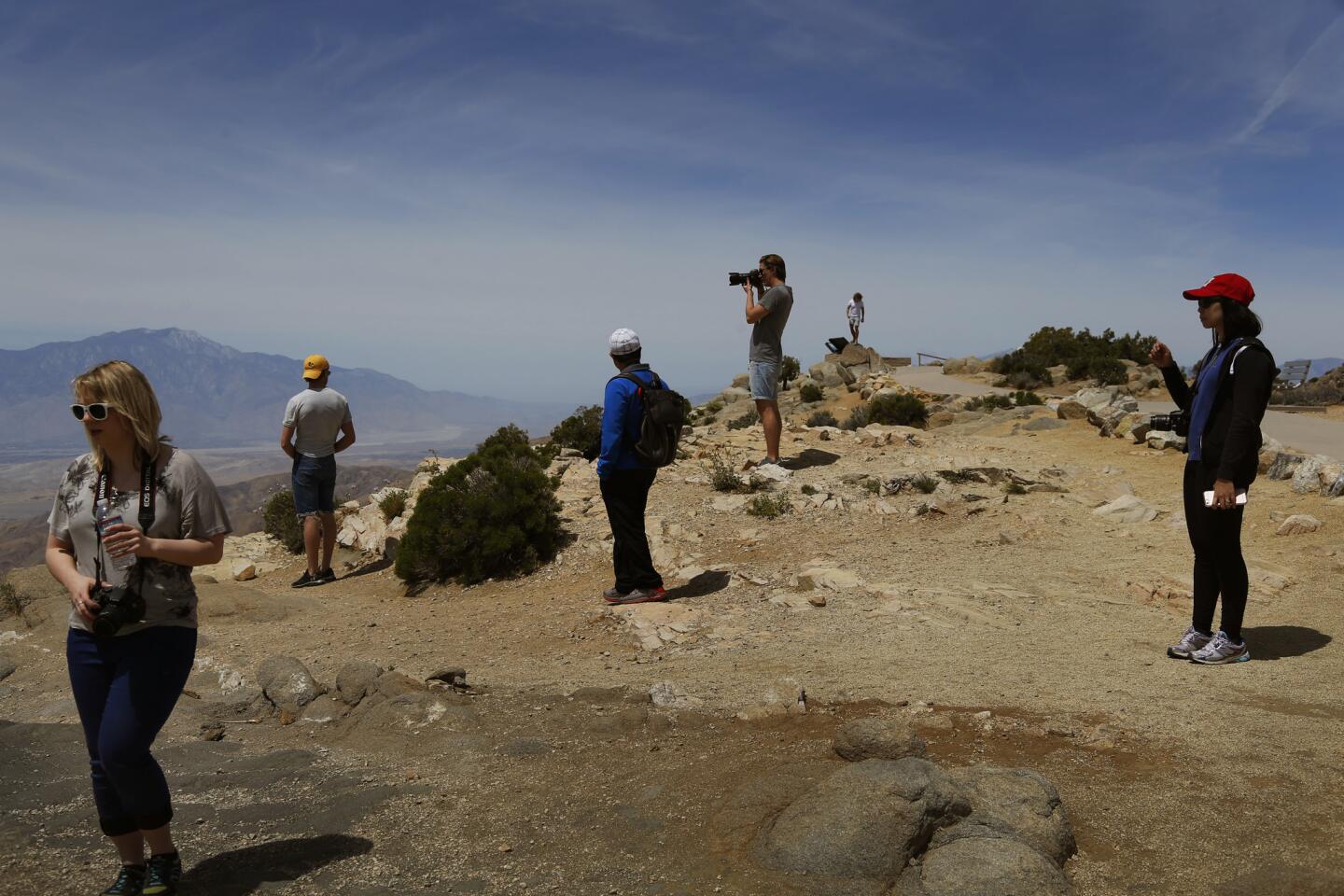
People check out the Key’s View area, which affords a sweeping view of the Coachella Valley, the Salton Sea at 230 feet below sea level and also the 11,500-foot San Gorgonio Mountain.
(Rick Loomis / Los Angeles Times)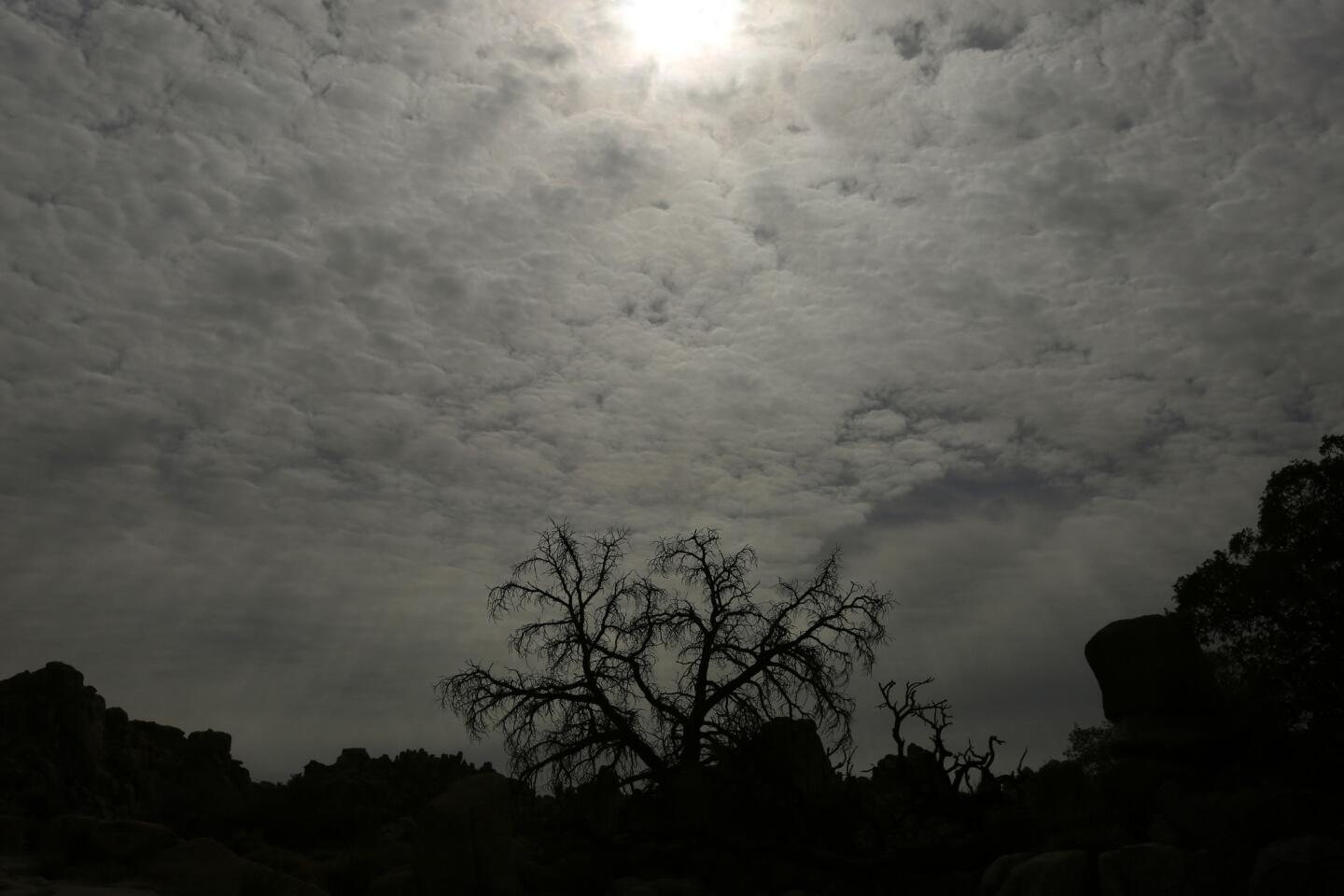
Joshua Tree National Park landscape.
(Rick Loomis / Los Angeles Times)Advertisement
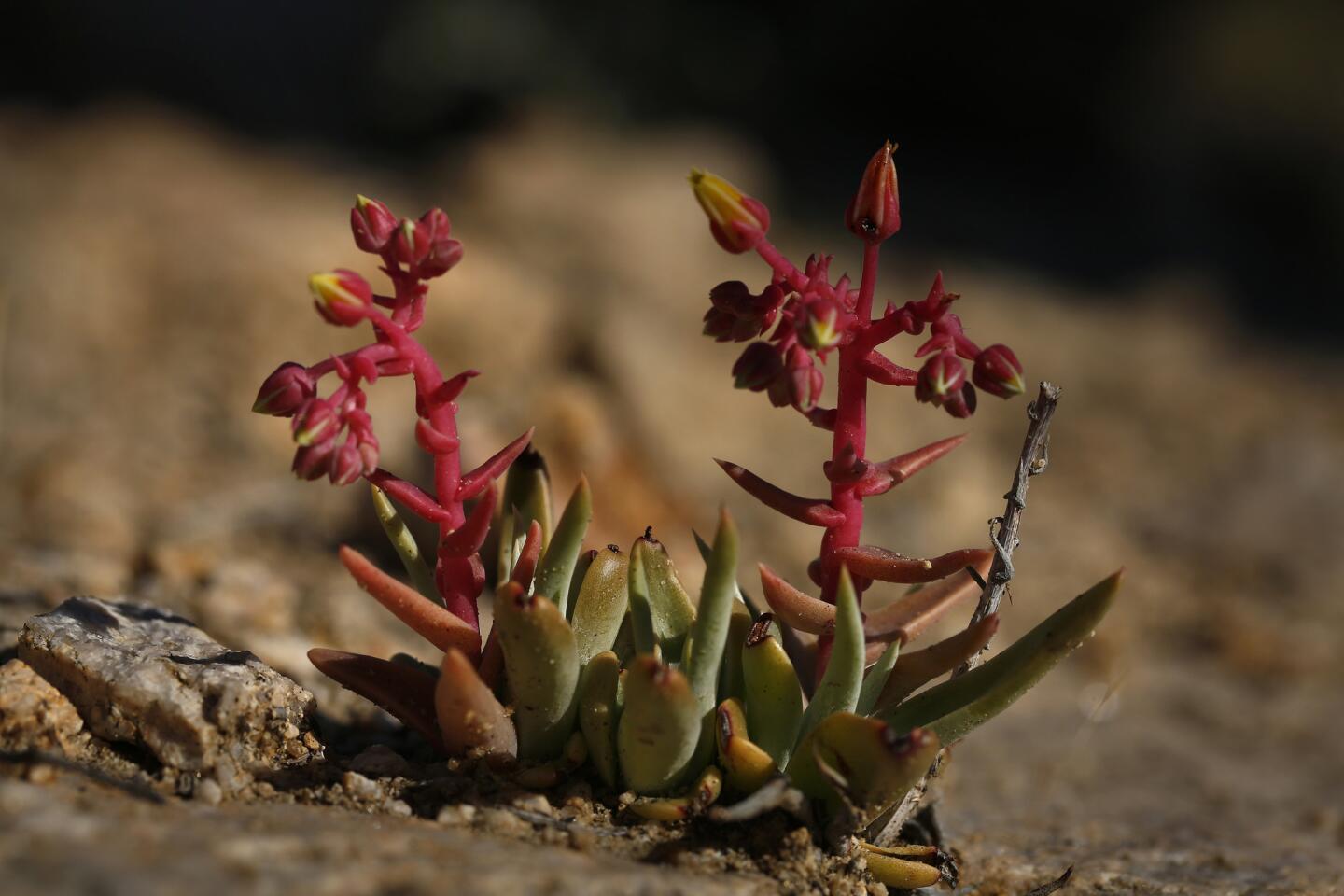
Panamint dudleya, also called live-forever, is a perennial succulent that can be found in Joshua Tree National Park.
(Rick Loomis / Los Angeles Times)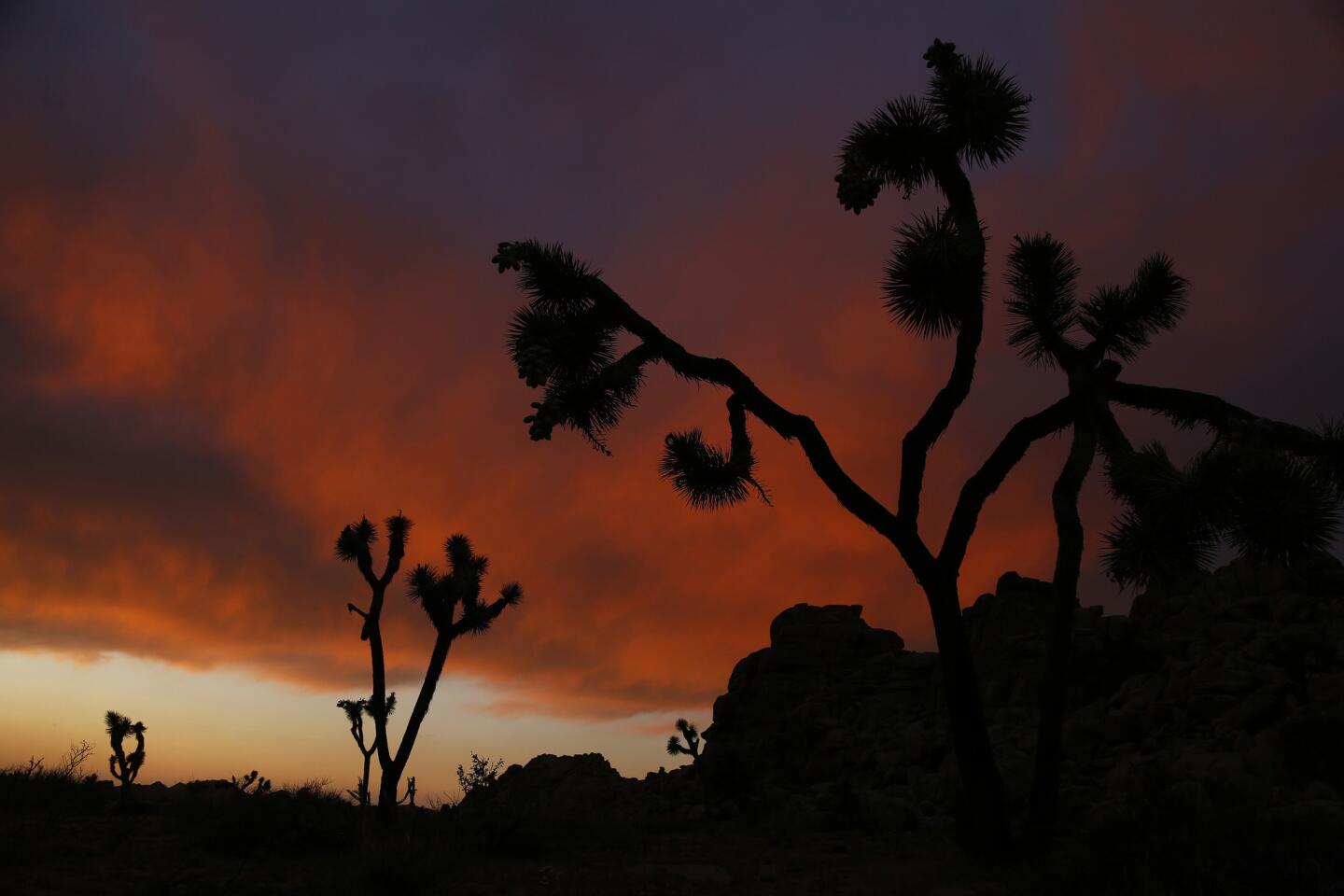
Joshua trees dot the skyline.
(Rick Loomis / Los Angeles Times)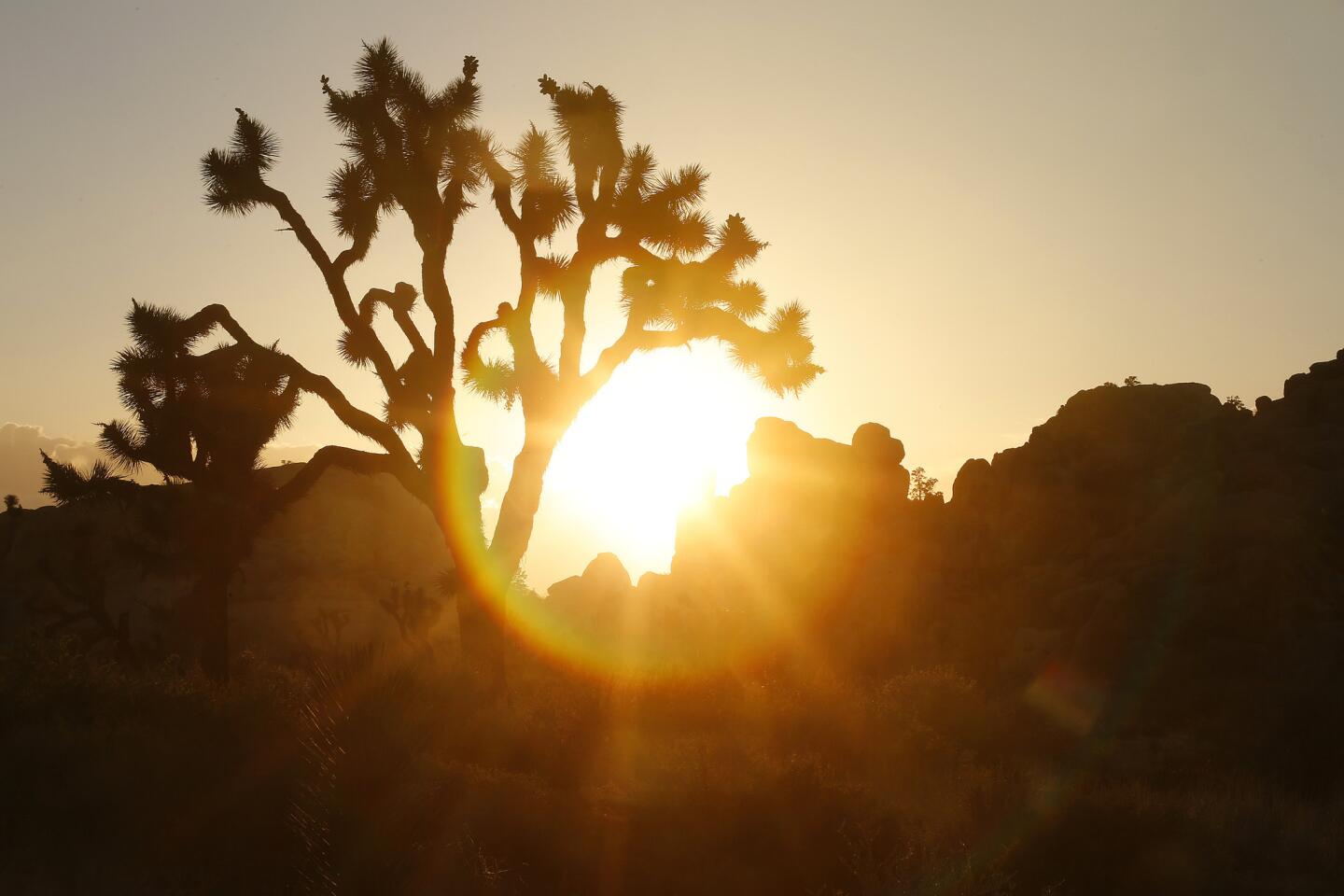
The sun looms behind a Joshua tree.
(Rick Loomis / Los Angeles Times)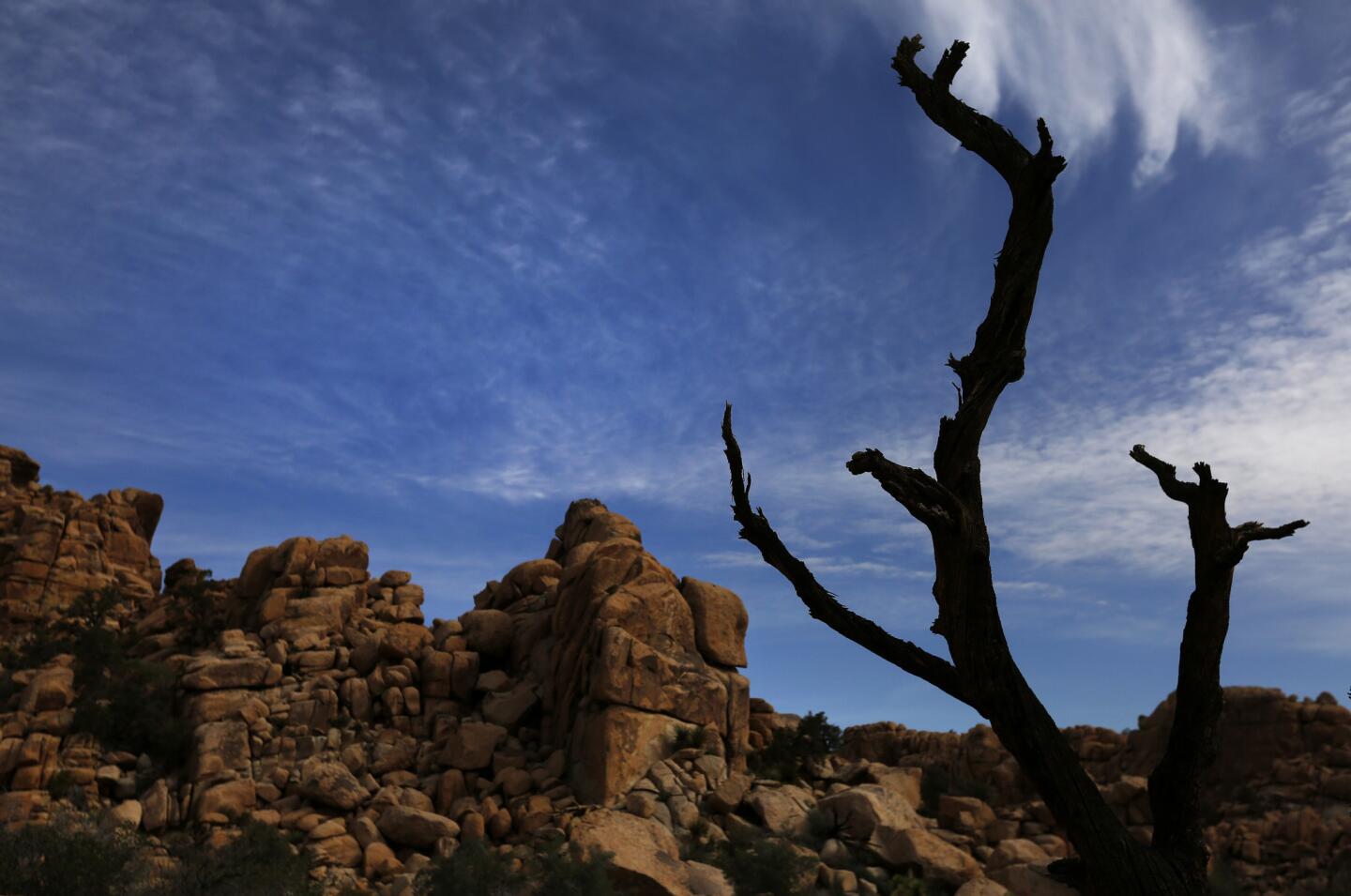
The land that constitutes Joshua Tree National Park was designated a U.S. national monument in 1936 and then became a national park in 1994.
(Rick Loomis / Los Angeles Times)Advertisement
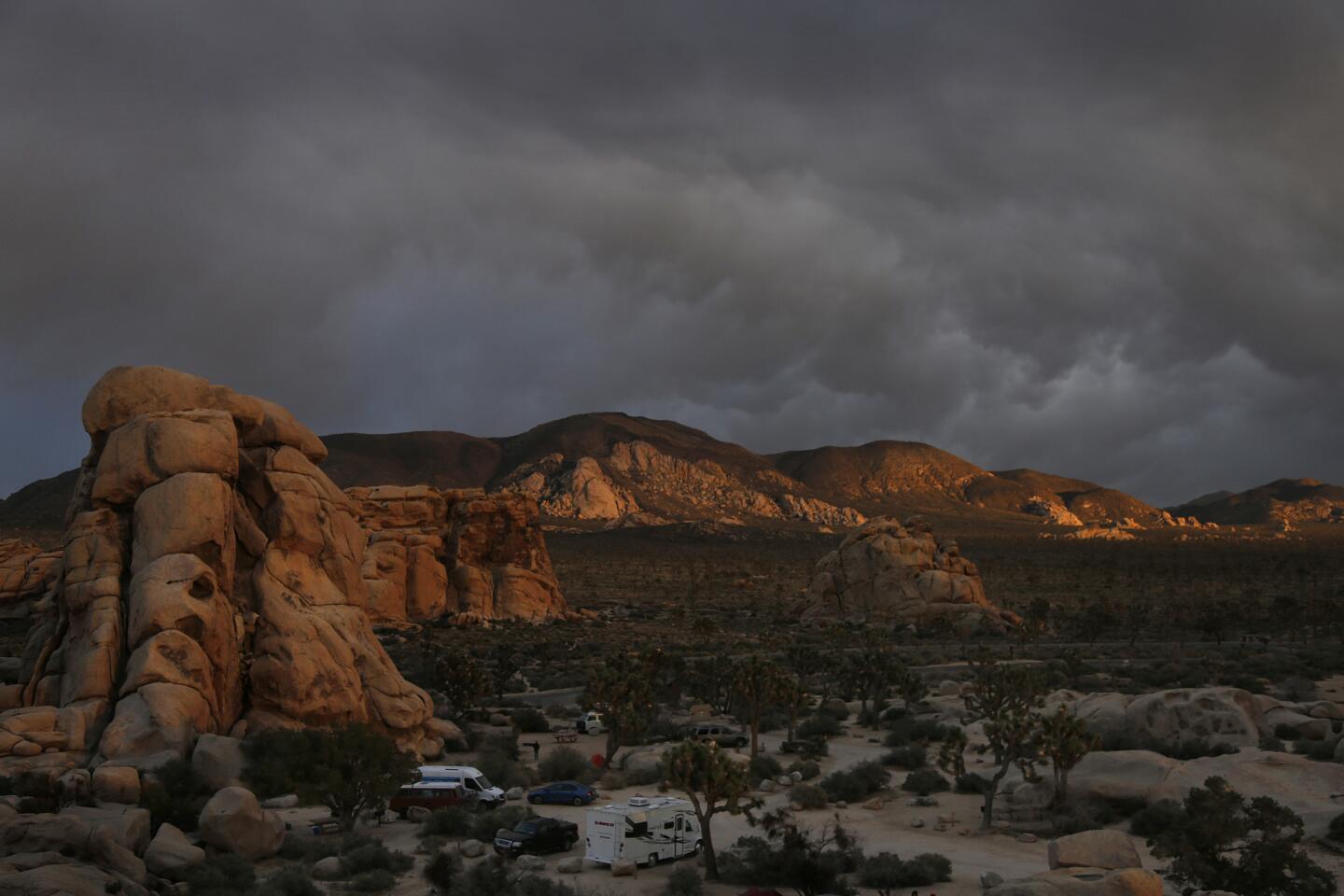
More and more people are craving that Joshua Tree state of mind. Hikers, climbers and seekers of all sorts are converging on this park like never before.
(Rick Loomis / Los Angeles Times)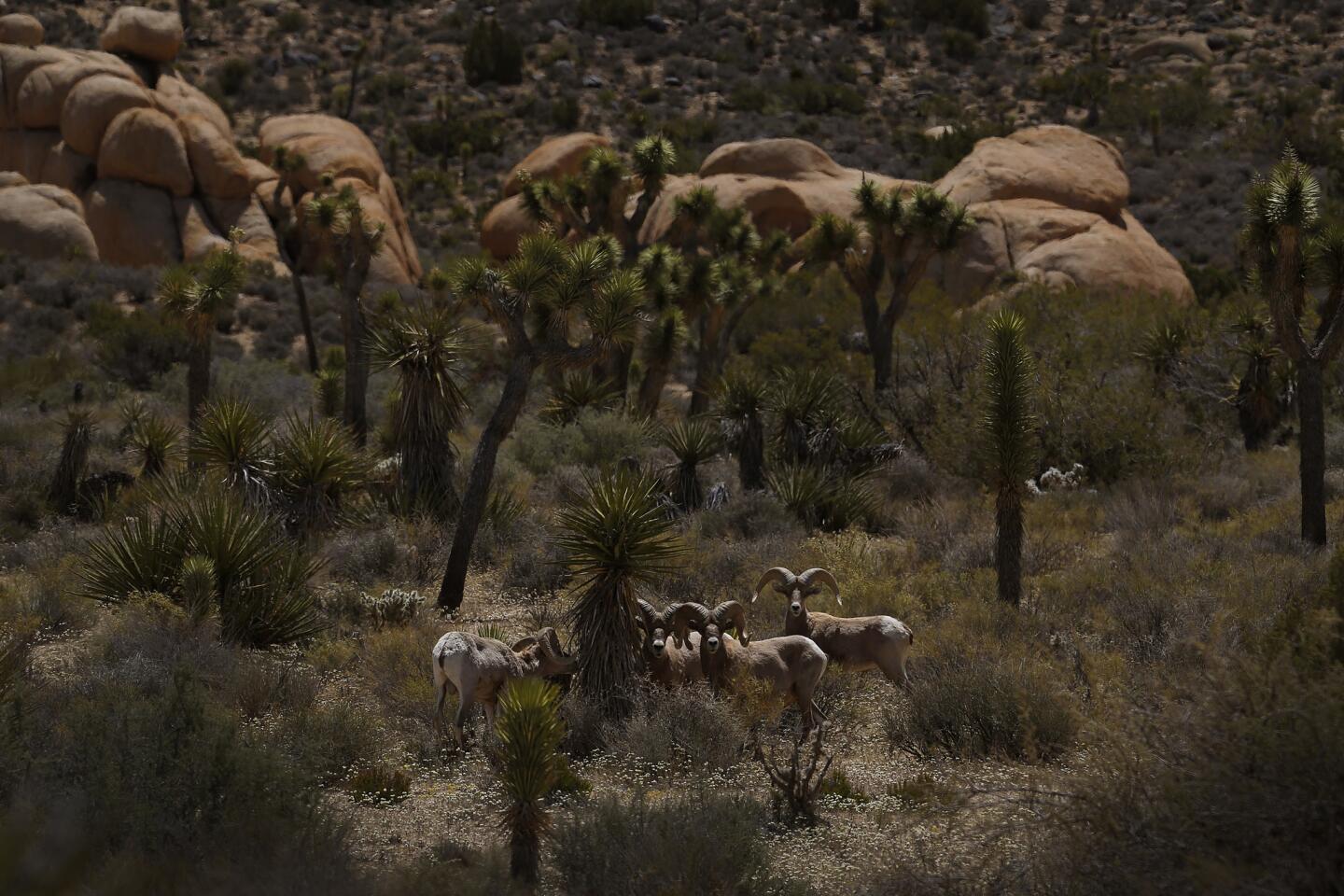
An estimated 200-300 Desert Bighorn sheep call Joshua Tree National Park their home.
(Rick Loomis / Los Angeles Times)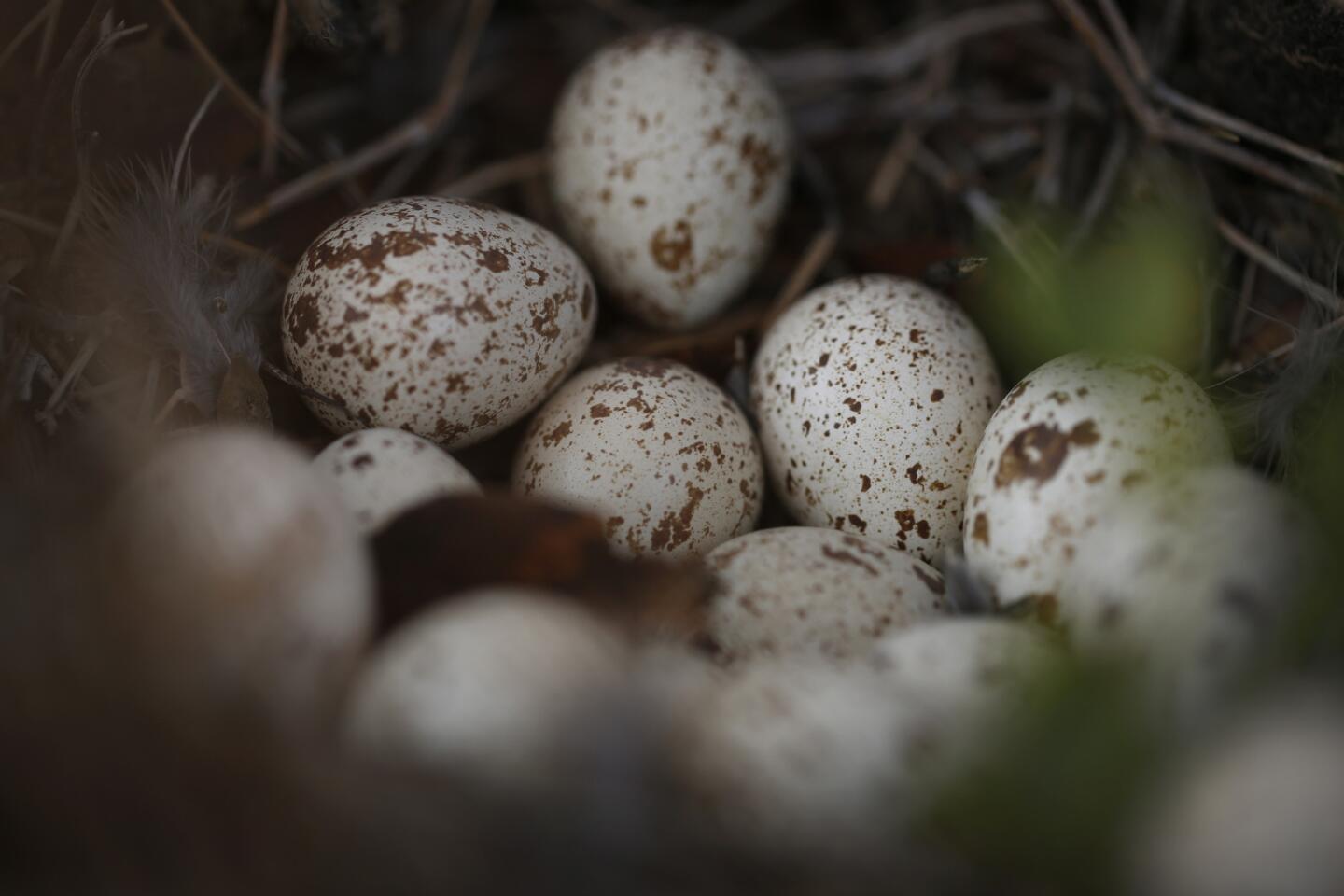
Quail eggs sit in a nest just outside the entrance to Joshua Tree National Park.
(Rick Loomis / Los Angeles Times)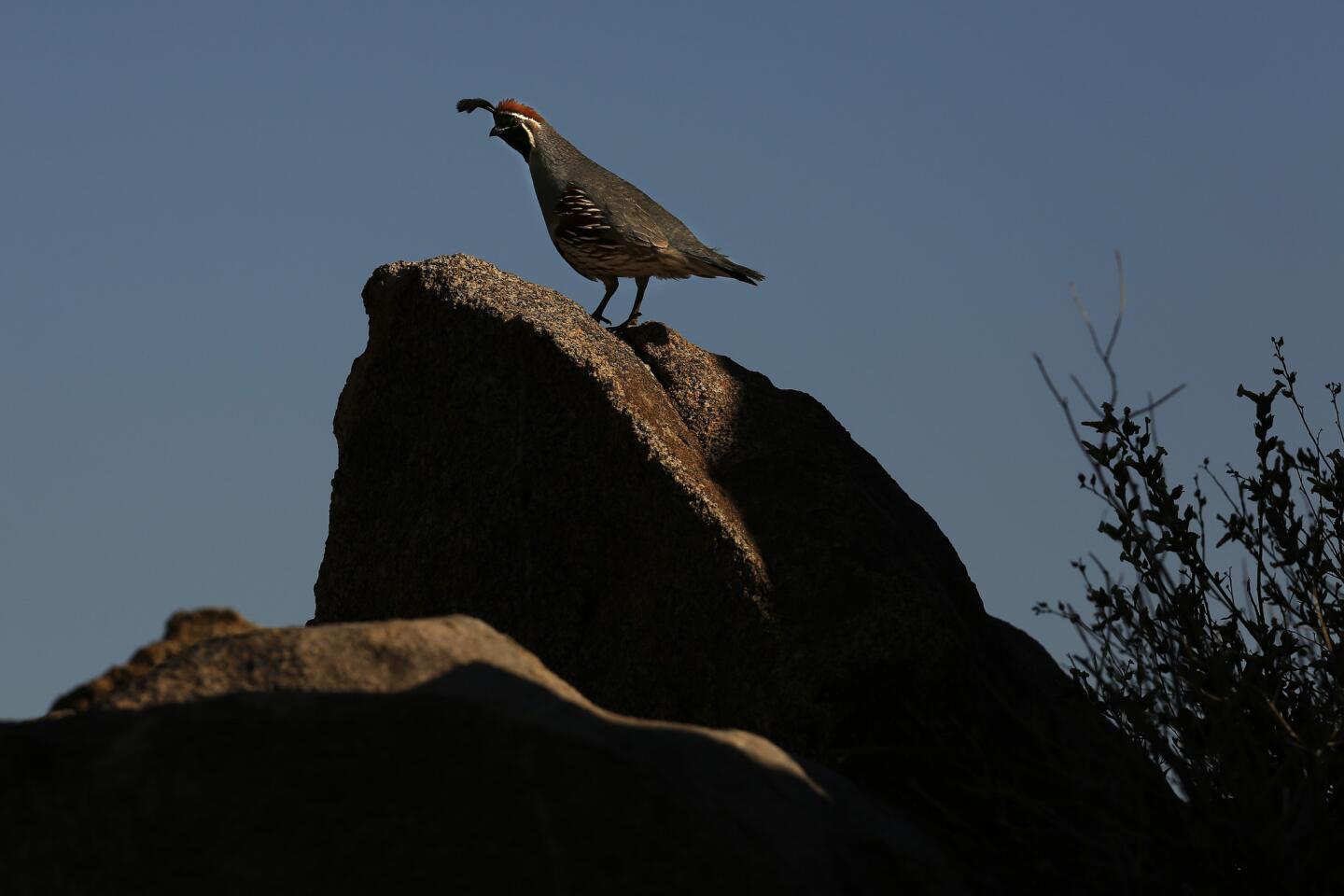
A Gambel’s quail perches on top of a rock formation.
(Rick Loomis / Los Angeles Times)Advertisement
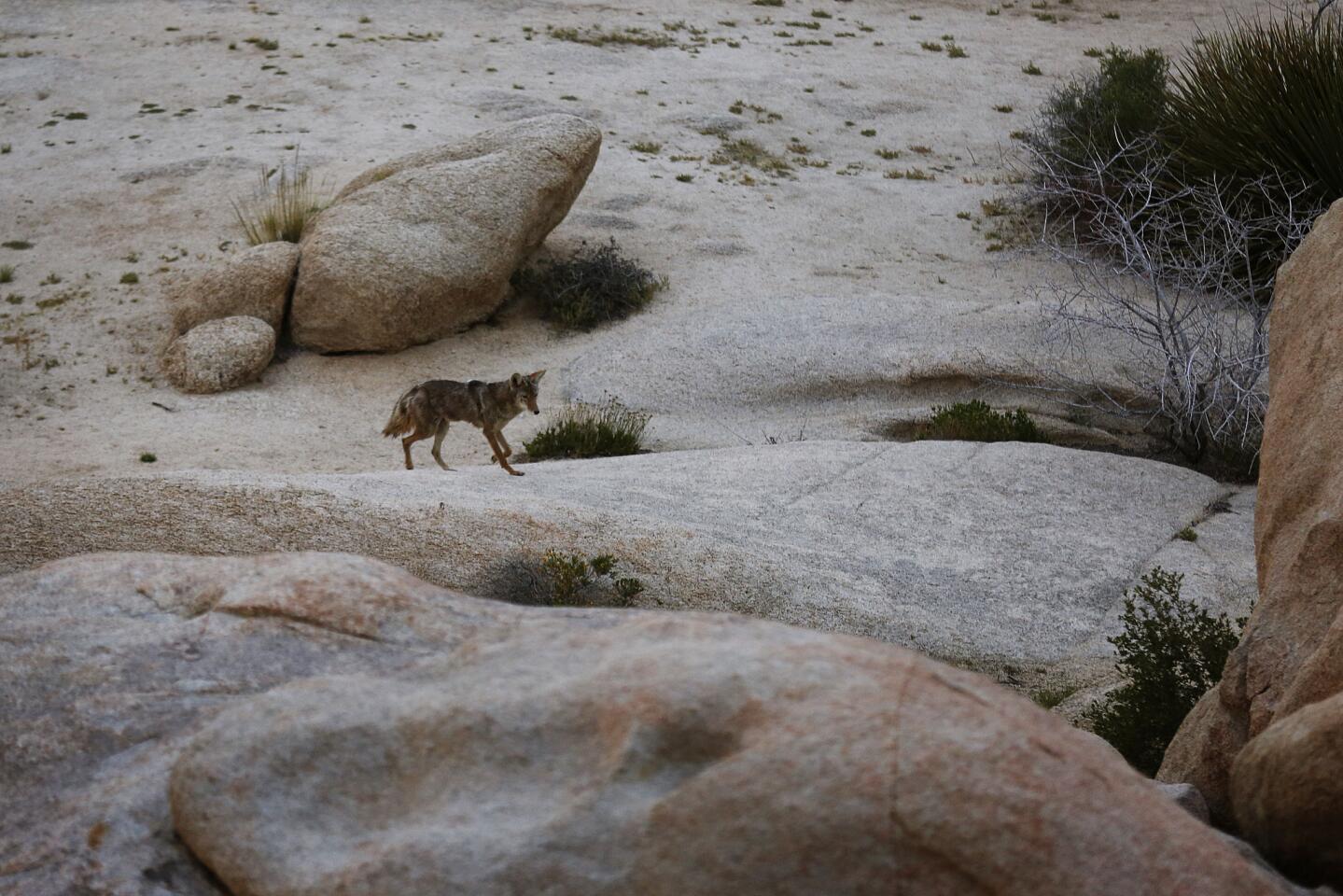
A coyote makes its way through a campground in Joshua Tree National Park. Lucky park visitors often see them or hear them howling in the distance, but are encouraged not to feed them.
(Rick Loomis / Los Angeles Times)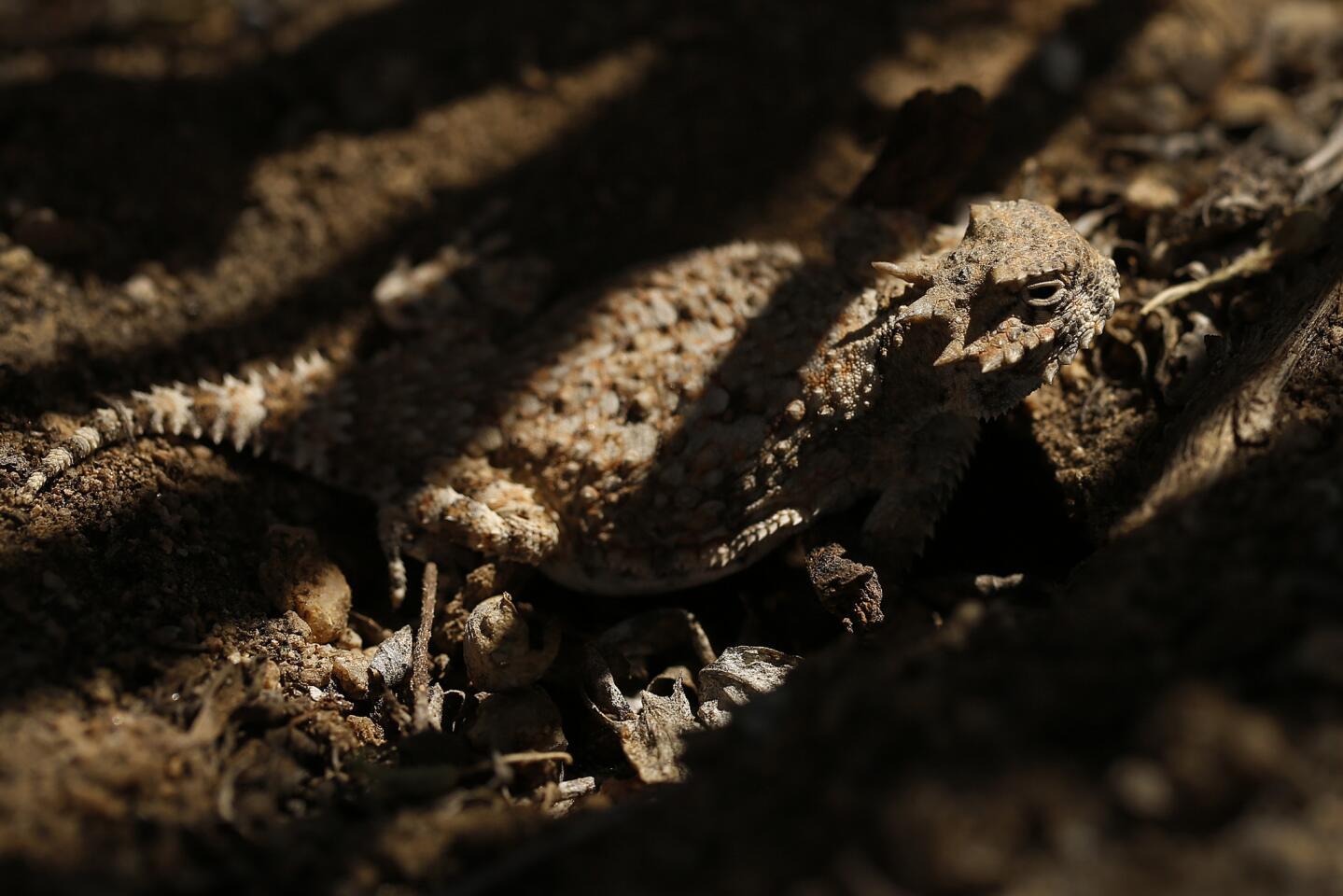
A horned lizard seeks cover amid the brush in Joshua Tree National Park.
(Rick Loomis / Los Angeles Times)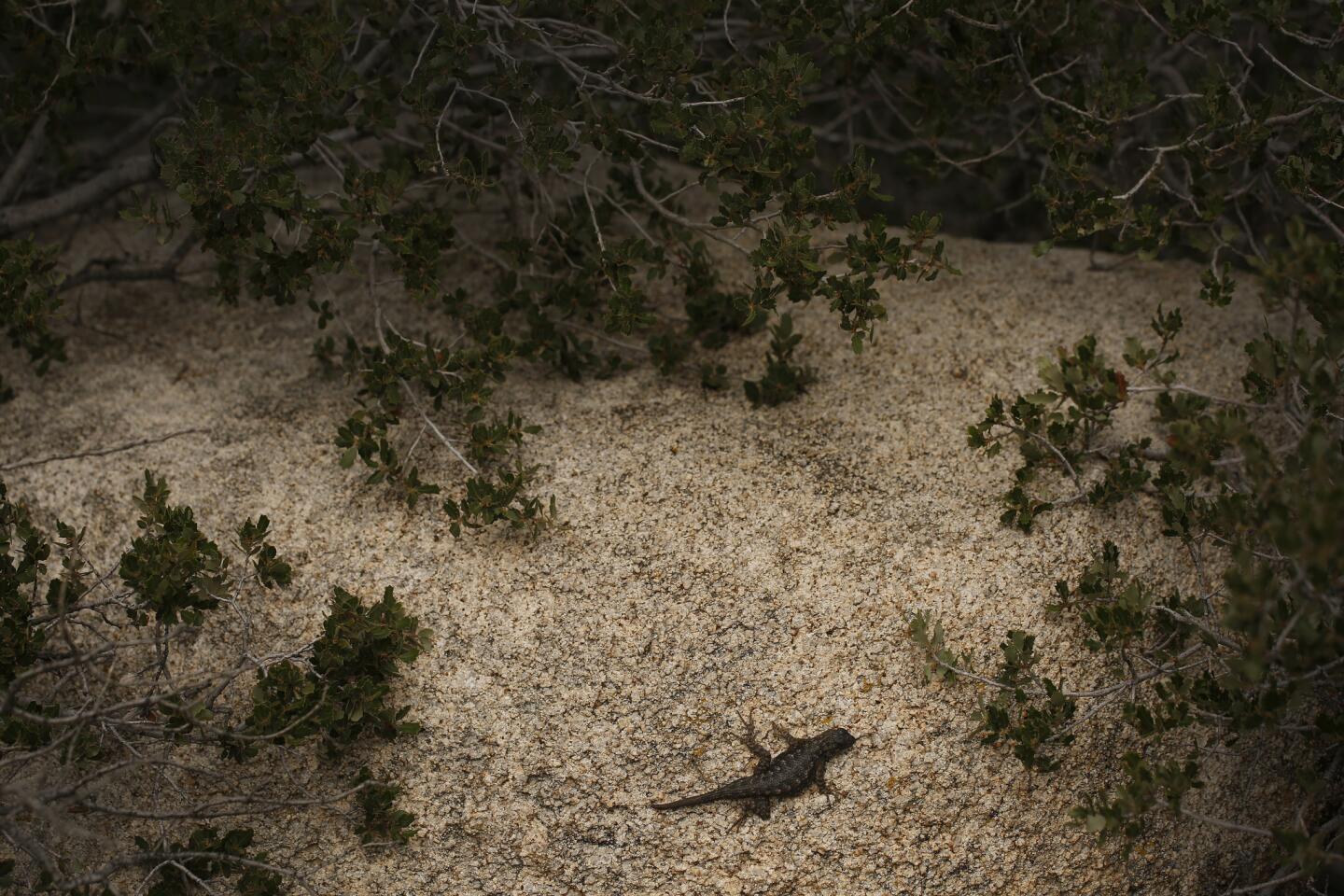
A Western fence lizard suns itself on a rock along the Hidden Valley Trail in Joshua Tree National Park.
(Rick Loomis / Los Angeles Times)


